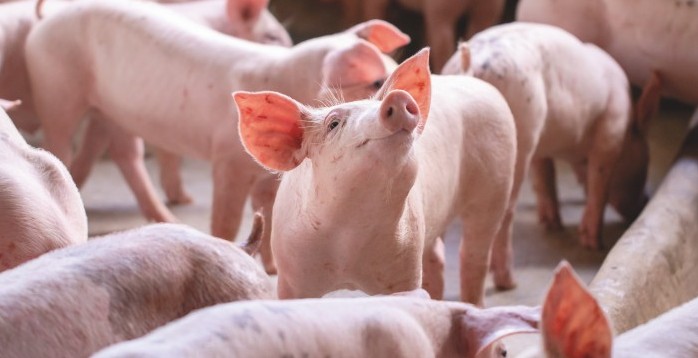A new study has found that Human activity, including agricultural practices and how we use medicines and antibiotics may drive the emergence of new variants of Salmonella.
The collaboration, led by Professor Rob Kingsley from the Quadram Institute and Professor Mark Stevens from the Roslin Institute working with scientists from the Earlham Institutefindings, was published in the journal Communications Biology, and has shown that despite being extremely closely related, variants can have very different effects on the health of the pig and also on the risks they pose to food safety.
The research explored how bacterial pathogens continually evolve to exploit new ecological niches, and discovered that human activity, including agricultural practices and how we use medicines and antibiotics may drive the emergence of new variants.
The team worked with Public Health England and the Animal and Plant Health Agency to examine Salmonella isolates from human clinical infections during routine diagnostics or from animals during routine surveillance.
Using whole genome sequencing the research team found that two types of S. Typhimurium, named U288 and ST34, have been circulating in UK pigs since 2003. U288 are rarely associated with human infection, while ST34 account for over half of all S. Typhimurium infections from all sources, not just pigs.
Examining changes in the genome sequence of U288 indicated that this variant emerged by a unique set of changes that occurred within a short period of time, probably between the years 1980 and 2000.
“One of the interesting findings is just how rapidly pathogens can adapt, and how even a few genomic changes can lead to very different disease outcomes,” said Dr Matt Bawn a researcher involved in the study based at both the Earlham Institute and Quadram Institute.
Prof. Stevens, chair of microbial pathogenesis and a deputy director at The Roslin Institute, University of Edinburgh, added: “Understanding how variants of Salmonella emerge and pinpointing the genetic signatures responsible for adaptation to different hosts and the ability to produce disease will provide opportunities to improve diagnostics and surveillance. In turn this will help to predict the risk that Salmonella variants pose to animal health and food safety.”




